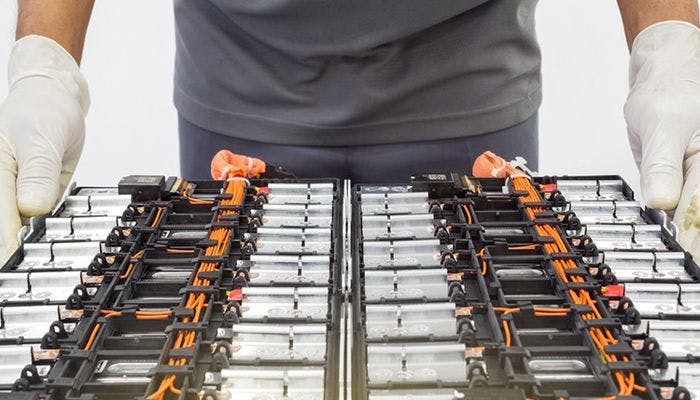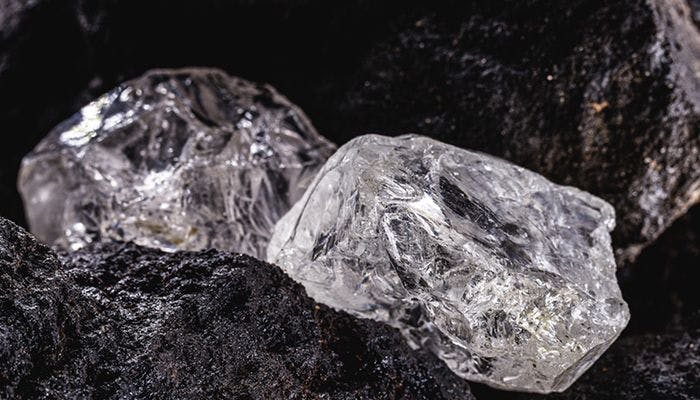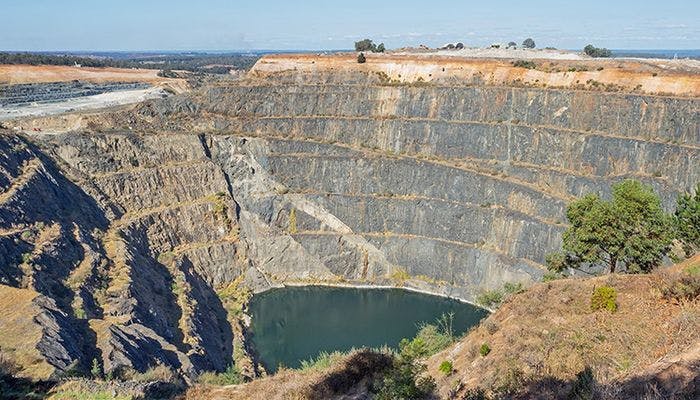0 articles dans la demande de devis
Thèmes
Industrie
Catégorie
Leverton Lithium, where the 'new gold', known as lithium, gets reborn.....
Lithium is key to energy transition. Foeth helps Leverton Lithium to recycle.
In this era of energy transition and digitilisation, lithium has become the new gold. How wonderful (read: sustainable) would it be to reycle the precious metal? That's exactly what Leverton Lithium is doing, and Foeth is happy to help them.
The Foeth-Leverton deal was a win-win situation in more than one way. The absolute winner: the climate, since both Leverton and Foeth have sustainability in their DNA. By purchasing and selling pre-owned process machines, Foeth makes sure that less new machinery will have to be made, resulting in less CO2 and other harmful emissions. When a client buys one of Foeth’s machines, 4.43 tonnes of CO2 emissions are avoided (per 1,000 kg stainless steel). The journey of the three paddle dryers has thus effectuated an enormous climate benefit, thanks to the joint effort of Foeth, Leverton, and the French pharmaceutical company:
Emission savings Foeth per 1,000 kg: 4,43 tonnes CO2
Total weight machines: 39 tonnes
Total avoided emissions: 173 tonnes CO2
When a customer buys a machine with Foeth, 4.43 tonnes of CO2 emissions are avoided (per 1,000kg stainless steel).
Just imagine how many CO2 emissions were avoided with this Foeth-HC partnership: a clean deal indeed!
Buyer: Leverton Lithium (UK).
Machines: 3 paddle dryers (3V Cogeim )
Total weight: 5,000 litres and 13,000 kg per machine.
Background: why do we need lithium?
Because no new paddle dryers needed to be fabricated, our dedicated cooperation made sure that 173 tonnes of CO2 emissions were avoided. This equals the yearly CO2 emissions of 20 Dutch citizens. Stefan Modderman, Foeth's CCO: We are very proud of this result, and we are very proud to have cooperated with Leverton. What they are doing is very innovative. By recycling lithium batteries, they're contributing to a healthier climate, just like we do."
New crisis ahead?
Those rechargeable batteries have become indispensable for private, medical and industrial use. And they are a key ingredient for the energy transition. That is, lithium ion-batteries can help to decarbonise highly polluting industries, to charge our electric cars and to store the green energy generated by our own solar panels, for instance.
Because of our dependency on lithium, the production and prices of the material have spiked, and we are all frantically looking around for new ways and places to retrieve the metal. Paradoxically, our hunger for lithium is actually making the material far from energy neutral. Increased mining activities are negatively impacting the local environment: water, soil and air are polluted, the ecosystem and landscape are degraded, and labour rights could be violated. Furthermore, lithium has to be transported across continents, adversely affecting our worldwide efforts to minimise CO2 emissions. And, above all, our lithium reserves are not endless: just like fossil fuels, the metal is a product of Mother Nature, so at a certain moment in time, we will just run out of our natural lithium reserves. In this pace, this will even happen sooner than expected, and we will end up exchanging the energy crisis for a lithium crisis.
Just sit down and look around… Mobile? Laptop? Reading tablet? Bluetooth headphones? Electric toothbrush? Smartwatch? Electric car of bike? Your household is bursting with equipment working on lithium-ion batteries. Lithium is the lightest metal in the world, predominantly mined in South America, Australia and China. Lithium had already been used for decades, even before we started digitalising. For instance in the button cells for your watch or in the batteries for medical devices, such as pacemakers. But our worldwide demand for lithium has started to rise at record speed since we’ve finally realised that fossil fuels are not going to last forever and that we need to minimise our C02 emissions. And of course, the digital age, with its newest must-have gadgets and household appliances, has also contributed to our hunger for lithium in a major way. Since then, we have massively started using (and have become highly dependent of) rechargeable lithium-ion batteries. The possibility of a lithium crisis is also recognised by the European Commission (EC). In September 2020, they presented a list of 30 ‘critical raw materials’: unprocessed, natural resources that we economically depend on. Critical raw materials are not abundant in Europe itself, so need to be imported from other continents.
Get in touch for your personal clean deal
Loading ...
Lithium is on this list, but cobalt as well, a material that is also used for lithium-ion batteries. The EC has calculated that Europe will need up to 18 times more lithium by 2030, and nearly 60 times more lithium by 2050, for electric car batteries and energy storage alone.
How can we avoid a lithium crisis? And how can we minimise local environmental damage from intensified mining? One of the major solutions would be to recycle lithium batteries. According to the EC, we globally dispose of 1,9 million tons of lithium per year, and they urge companies to put more effort and research into recycling the metal. But recycling lithium-ion batteries is quite difficult because they consist of numerous parts and substances, besides lithium, such as plastics, aluminium and other raw materials. Many intricate processes are needed to extract not only lithium but also other critical earth metals, like manganese, cobalt, and nickel, from the batteries.
Sustainable match: Foeth & Leverton
Fortunately, science and business are more and more focused on innovating the recycling of lithium. Leverton has specialised in lithium powders for all sorts of use and industries. The British company is “proud to be a part of the revolution that will lessen our reliance upon fossil fuels and lead to a more sustainable future”, as can be read on their website.
Leverton has also been confronted with the rising need for the ‘new gold’. They already realised early on that recycling used batteries would be the more sustainable way to meet growing demands, and they have increasingly been doing so.
But where could they get the process machines to scale up their recycling activities fast? Leverton turned to Foeth. In our stock, Leverton found the paddle dryers they needed: premium high-quality equipment, at a competitive price and ready to be delivered at once. After having been thoroughly checked and refurbished by Foeth’s technicians, the machines were ready to start their second lives. "Our cooperation with Leverton went smoothless", says Stefan Moddermen, Foeth's CCO. "We had worked together before, so they already knew our mission and how dedicated we are to our clients and to our green mission. Their innovative vision is a perfect match with our own sustainable mission."







